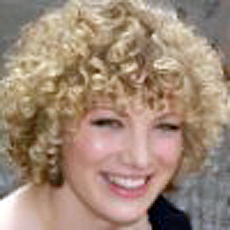“Don’t underestimate the value of being an HR practitioner with mathematical ability because it will be one of things that sets you apart from the crowd.”
What’s your job all about?
My job generally consists of running assessment centres for job candidates as well as delivering assessor training to ensure consistency and best practice when it comes to recruitment and selection. I also work with agencies to brand our graduate marketing activities. I spend some time working with students, delivering on campus presentations and skills workshops to educate them about available graduate schemes and how to perform at the best during the recruitment process. I also have a role in designing and delivering the scheme to ensure graduates can progress within the organisation.
What’s the best bit about your job?
The variety of activity required in one cycle of graduate recruitment and the exposure to a whole spectrum of people i.e. students/graduates, career advisors, close working relationships with peers in other organisations, specialist marketeers, specialist occupational psychologists and many more. It always keeps me thinking and learning.
What did you think of maths at school?
In school I didn’t like maths – it wasn’t a favourite subject. I wasn’t bad at it – it just didn’t come naturally to me. In the end, I did very well at GCSE (A) but the fear stuck with me and it’s a personal barrier believing I wasn’t a ‘natural’ at it. I avoided anything maths based like Excel etc.
Do you use maths now in your day-to-day work?
I need maths on a daily basis. I manage a budget into the millions and am required to report monthly on debits and credits. I have to work to cover costs for headcount, training, agency fees, marketing communications etc and my performance review each year will be influenced by how well I managed that spend and tracked costs (given I’m dealing with millions of pounds, it requires regular work to manage)
Without maths I couldn’t provide the details required to support any further proposals or pitches about future hiring plan volumes. If I couldn’t use maths, I couldn’t progress my area or improve the processes currently in place. I couldn’t forecast how many vacancies we’d have for graduates or how to improve their experience when applying to us.
Did it surprise you how crucial maths turned out to be in a job that isn’t obviously mathematical?
I assumed HR wouldn’t need maths – but, for any strategy developments, I need to be able to support the request with financial implications, be they requesting more budget to deliver new practices or how to use existing budget differently to deliver the same strategy.
Is it harder to progress up the career ladder in your field if you don’t have a good grasp of maths?
Without doing the things I’ve mentioned, like writing strategy papers, proposals or identifying business improvements, I would not be able to progress in my career at all. All of those things require maths.
What advice would you give anyone looking to get into your sort of work when it comes to maths?
Don’t underestimate the value of being an HR practitioner with mathematical ability because it will be one of things that sets you apart from the crowd. Try to maintain a level of numeracy and statistical understanding so as not to forget the basics – simple online tests and newspaper quizzes can help with this. I had to learn how to use Excel having been afraid of it in my school days – now there’s not a day goes by I don’t use it and rely on it to produce complex mathematical formulas to produce my reports. So try to develop these skills progressively rather than learning on the job like I did; I needed to have been capable quickly.
Anything else you want to add?
I think the way maths is often taught in education, abiding by the syllabus etc means the practical element and the usefulness is removed or not conveyed effectively. Reality in the world of work brings this harshly into perspective. How can you measure success or performance or compare and contrast without maths when the one stable and comparable element year-on-year is numbers? I feel proud that I now use numbers to support what I want to achieve and would even go so far as to say I enjoy getting beneath the numbers and interpreting what they mean – it’s very satisfying! It will never be a natural skill to me but it’s one I embrace and, knowing its value now, I wouldn’t be without.






